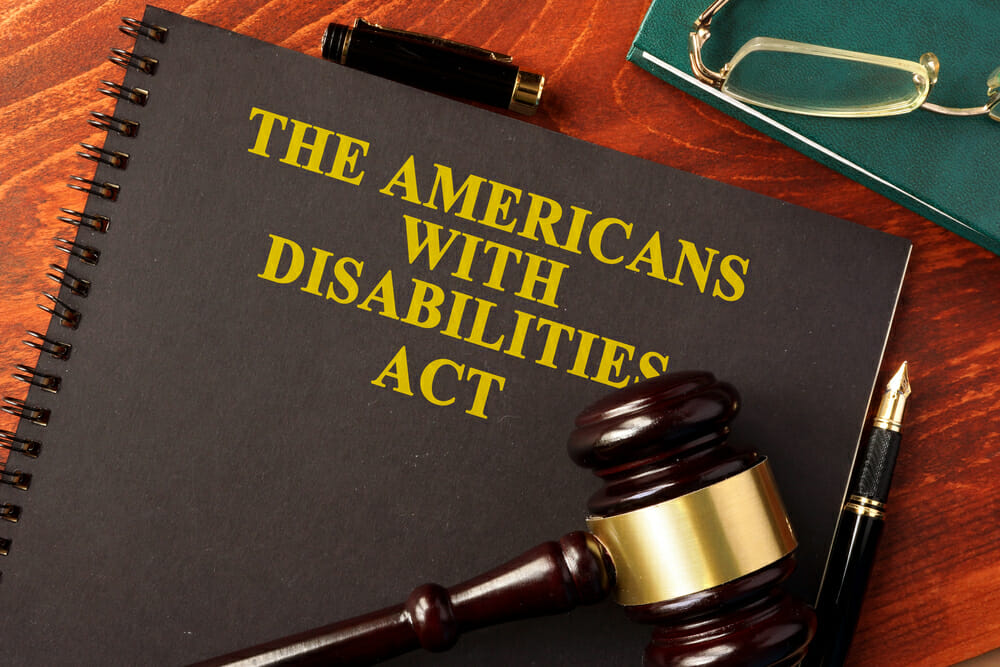Why does ADA compliance matter as a property manager?
As a property manager, you need to abide by many regulations in order for your property to be in compliance with federal and state housing laws. One aspect of managing a public facing business is making sure your property is ADA compliant.
The Americans with Disabilities Act prohibits descrimination against people with mental or physical impairments. This means that property managers are responsible for accommodating aspects of their property to better suit people with disabilities.
Disability covers a broad range of impairments and challenges that someone may face, so it can be hard for a property manager to comprehend what that means for them. As most property managers are not the owners of these buildings or businesses, you may be asking why you need to be aware of these regulations, and how they can affect your job.
What does ADA Compliance Mean?
Under ADA compliance, property managers are responsible for accommodations being “readily achievable”. This means that if the request is not a heavy burden or expense, the property manager must fulfill it. Examples of this include: installing wheelchair ramps, widening doors, or allowing service animals.
If it is not feasible to quickly and easily accommodate a change for someone, then you can provide a reasonable alternative. Above all else you must be acting in “good faith” to comply with accommodation requests and requirements.
If you are actively trying to figure out ways to improve your ADA compliance and accommodate disability requests, then you will not be considered in violation of the law.

Communicating Accommodation Requests
Property managers oversee tenant communications, concerns, and complaints. If a tenant or patron has a question or request about accessibility, they will likely take it up with the property manager. You will need to provide an easy way for them to communicate their needs, whether it be through email, phone, or office hours.
Not providing these options or failing to remove communication barriers is a violation of the ADA. As a property manager you are acting as an agent on behalf of the owner, so you are responsible for communicating any requests or changes, between the two parties.

Manage and Oversee Operations
Since the property manager overseas building operations, you will likely be the one implementing the accommodations. If a tenant makes a request for a change based on their disability, under ADA laws, you can ask for verification and then determine if the request is reasonable or an undue hardship.
An example of a readily achievable accommodation would be adding a handicap parking spot to a parking lot. This request would not be a large monetary cost or time consuming burden to you as a property manager, therefore you must accommodate this request.
Improves User Experience
Many ADA compliance requirements can improve the overall experience of using a building, and can result in more satisfied guests. Things such as working elevators, wide hallways, automatic doors, and wheelchair ramps can help various groups of people, not just people with a certain disability.
For example, if a tenant has a broken leg, and you do not have any ramps or elevators, they will not be able to access the building. A wheelchair ramp may also offer a good option for deliveries, people moving in and out of the building, or anyone that has trouble walking up stairs. By complying with basic accessibility requirements, property managers are able to deal with less complaints and issues that may arise.
Liability for Damages and Lawsuits
If you fail to take the steps to make sure your property is ADA compliant, you and the property owner may face fines or lawsuits, and be liable for damages. Owners, landlords, and property managers can all be liable in the event that the property fails to comply with ADA requirements. This means that you as a property manager can be sued by the person requesting the accommodations.
If you are sued by an individual party, you can fulfill the tenants request and file a motion to dismiss the lawsuit. However, if you have a long history of ADA violations or make no good faith effort to accommodate any requests, you could be sued for discrimination. In addition to lawsuits, your noncompliance could result in injuries and other grievances that could have been prevented.
Overall, making an establishment ADA compliant is a joint effort between multiple parties, with the property manager and owner often bearing the brunt of the responsibility.
Contact NYS Enterprises
Are you wondering if it's time to resurface your parking lot? Contact NYS Enterprises to speak with an experienced team and formulate a personalized plan for your parking lot needs.
Get Started




